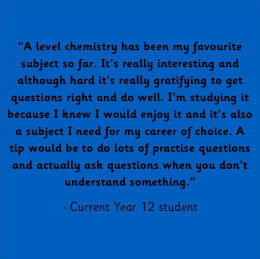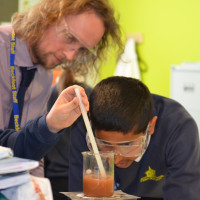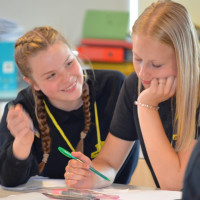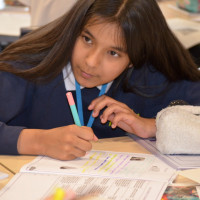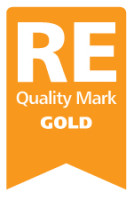Chemistry
Download our Chemistry prospectus here.
Example exam questions here.
By studying Science at Beckfoot, students will learn about the way the world around them works and develop essential skills for future study and for life. By looking at phenomena involving the largest objects in the Universe down to those too small to see with the naked eye, we will create a sense of awe, wonder and natural curiosity. Students will leave us having become more employable, able to keep themselves safe and with the cultural capital to engage with the Science they encounter in the future. We intend to provide all our students with a broad and balanced Science curriculum.
Chemistry FAQs
1. What exam board specification do you follow?
We follow the AQA specification in Chemistry.
2. What kind of degree options or careers do students who study Chemistry go on to pursue?
Degree courses such as Chemistry, Biology, Mathematics, Pre-clinical Medicine and Pharmacology. Career options include chemical engineer, doctor, research scientist, chartered certified accountant, science writer, clinical biochemist, amongst others.
3. What kind of topics do we study?
You will study topics relating to the three main areas of Chemistry – Physical, Organic and Inorganic. These include fundamental principles in the first year covering Atomic structure and Bonding, Amounts of substance, Energetics, Alkanes, Alkenes, as well as the Periodic table including Group 2 and Group 7. In the second year, you will build upon the foundations of what you studied in Year 1 such as Thermodynamics, the Rate equation, Acids and bases, Period 3 elements and aspects of Organic Chemistry including Acylation, Aromatic chemistry and Biochemistry.
4. What kind of practical activities are carried out?
As with other A-level Science subjects you will be awarded a practical endorsement for satisfying practical skills criteria throughout the two-year period. This consists of a simple ‘pass’ or ‘fail’ qualification alongside the grade for the subject. In Chemistry, examples of practical activities include, tests for different types of compounds, making a standard solution and carrying out a titration, measuring the rates of reactions, studying electrochemical cells, preparing organic solids such as aspirin and organic liquids such as esters and carrying out advanced chromatography techniques.
5. What exams do I sit in the subject?
There is no coursework as such, instead you will complete practical work alongside theory and complete 12 required practical experiments over the course of the two years. Your performance during practicals will be assessed. There are 3 exams at the end of the two years, all of which are two hours long. At least 15% of the marks for A-level Chemistry are based on what you learned in the practicals.
6. Is the subject hard?
All A-level subjects are hard, and Chemistry is no different. If you work hard, act on feedback from your teachers and seek support when required, you will succeed. A great deal of resources and support is provided by the teachers to ensure that you don’t fall behind and succeed in this subject. The subject is challenging but very rewarding and as past students have said, very enjoyable!
Who to contact to find out more about this subject at A-Level:
Dr Glenn Wright or Dr Kay Jamadar
Student Testimonials

